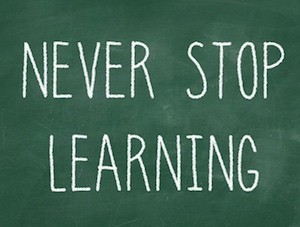Just because you’ve already graduated or are well into your career doesn’t mean you’re completely done with school. A number of circumstances could have you thinking about going back to college to take a class or two, earn a certification, or work toward an entirely new degree. Just as you had a lot to consider about college as a teenager, the same is true now that you’re an adult. In fact, you may find you have a lot more to think about the second time around. So, what are some things to keep in mind about going to college as a working adult?
Know When You’re Ready
To help you reach a decision about whether to apply for college, you need to know whether you’re actually ready to invest your time and energy. One great indication is you’ve done a lot of thinking and know what kind of training you want and is best for your professional and personal future. That means you know whether you need to earn certification or invest a few years earning a degree. You may even have an idea of which institutions are best for you and your goals.
Another sign of readiness is that you’ve already figured out how to pay for college. No matter what your educational goals are, chances are, the cost of those goals has gone up since you were a teenager. If you’ve explored your options regarding student loans, paying for school out-of-pocket, or applying for scholarships, then you’re one step closer to making a final decision.
Know Whether You Have the Time
So, you know what you want to study and how you’re going to pay for your certification/degree/courses. The next question is, do you have the time to go back to school? When you’re a teenager, you can devote a majority of your time and mental resources to going to school, maybe even holding down a part-time at the same time. Now that you’re an adult, you may have a full-time job, a family, aging parents to take care of, or other obligations that can limit the amount of time you can devote to your classes.
Some programs and courses are more time-intensive than you may first realize, especially if you choose to enroll in a master’s degree program. You want to give yourself enough time to do more than skate by in your classes doing the bare minimum, which could mean taking one or two degree courses a semester, which may stretch out the total length of your program. When it comes to higher learning institutions, you want to make the most of your investment, whatever form that investment may take, which means not rushing things.
Also, bear in mind the fact that online courses could be more in-depth than you realize. Do plenty of research on distance learning courses and programs to know what you’re getting yourself into.
Know What You Want To Get Out of Going Back to School
Touching back on whether you want to go back to school for a degree, certification, or continuing education, dive a bit deeper into that. Do you want to advance in your current career? Do you want to start on an entirely different career path than the one you’re on now? Are you broadening your education for a promotion? Do you want to earn more money? Once you have these answers, you’ll have the motivation you need to keep going if/when classes start to wear you down. Thinking deeper than the surface level can bring true satisfaction rather than mere contentment with your decision.
Know Which Program and School Are Best
Just as there are some great schools out there, there are also some downright disreputable institutions that prey on the ill-informed. Be sure you thoroughly vet schools and programs you consider. Specifically, check to see whether the school is currently accredited and whether it has positive reviews from current and former students. Do you already have a degree, or have you taken college-level courses in the past? If so, check to see if any of the schools you’re interested in will accept those transfer credits. If so, you can save time and money by not having to take as many classes to accomplish your educational goals.
While you may be one of the oldest students in the classroom, you could also become one of the best and one of the most satisfied. A little planning and research are all you need to reach a final (and hopefully wise) decision for yourself and the future of your career.



